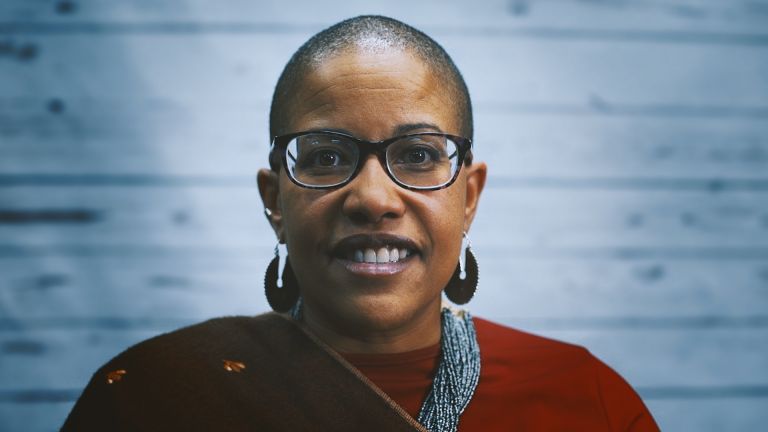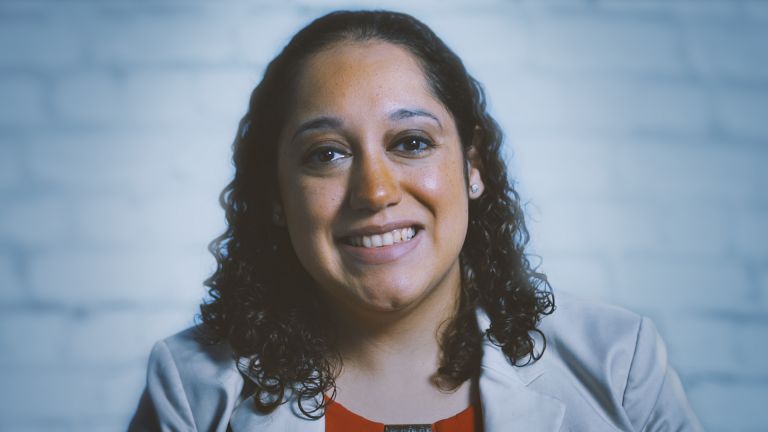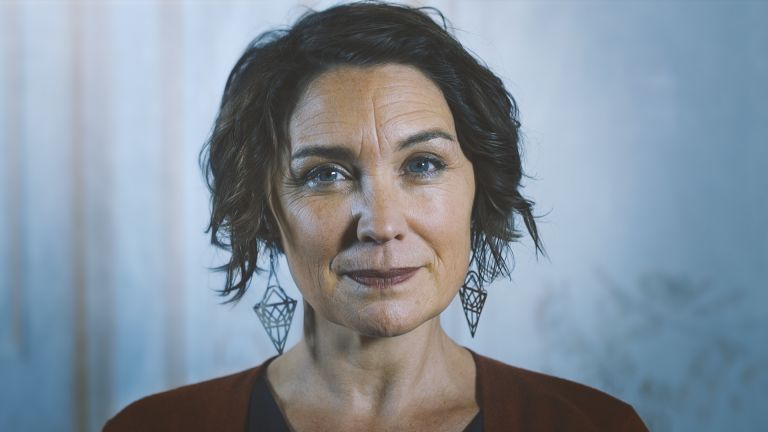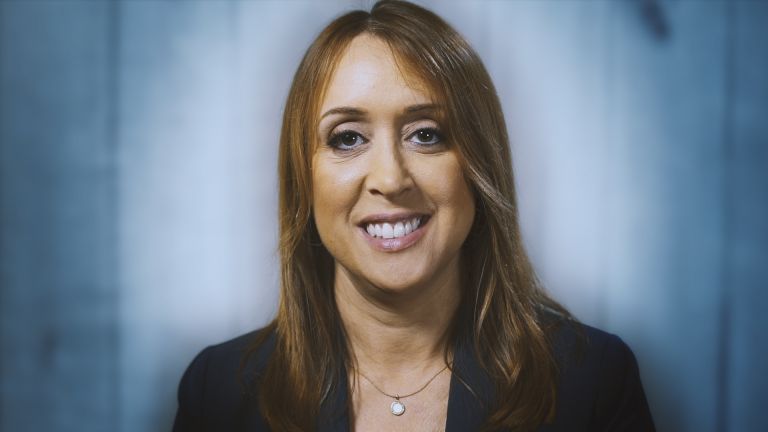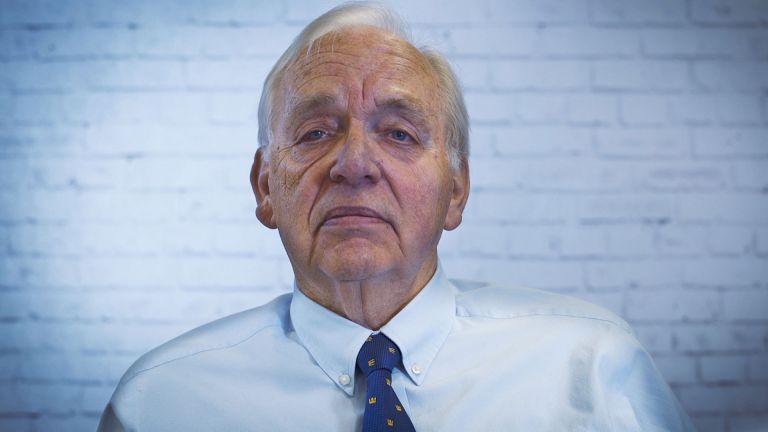Joyal Mulheron
Joyal Mulheron spent more than fifteen years advising high-ranking politicians, including former Arkansas Governor Mike Huckabee and former First Lady Michelle Obama, and translating basic science into public policy. She has enjoyed leading major initiatives for the National Governors Association, the National Academies of Science and the American Cancer Society. She holds a Masters in Biotechnology from the Johns Hopkins University and degrees in Biochemistry and English from Virginia Tech. After a series of high-profile death events and the death of her daughter, Joyal founded Evermore to change policy, advance research and make the world a more livable place for bereaved families.
A couple of years ago, I was advising the nation’s governors, um, on, uh, public health issues. I did some, uh, some brief advising for the last White House. Um, when our daughter was sick, I, we had just this horrific experience . . . and horrific not just because your child is dying and you’re watching them die and there's nothing that you can do about it. But we were just interfacing with people and these providers, and, and all the while I just kept thinking, “Something else has to exist. This is awful.”
And frankly, although I had been advising the nation’s governors, I thought I was incapable of navigating the healthcare system to get myself and my family the support we needed while our daughter was sick I had a child that the medical community didn’t know how to treat or know what to do with. Because I was a basic scientist by training, I was crunching the numbers on what her calories should be. I was doing all of her dilutions at home and all her medications and working with one of the hospitals. My local hospice provider was not doing that for me.
Um, I was asked to leave my job because they didn’t know my kids were having a very hard time in school. They’re very good students, but then suddenly they weren’t. It was very stressful. Um, there are a lot of also financial implications with having a terminally ill child and, and all of the things that, that they require and need.
Um, the health insurance company, uh, you have, when you have a very sick child, you get a case worker. And so, my case worker would call me every couple of, like every couple of weeks. And, um, she’d say, you know, she’d ask me, um, “You know honey, do you think she’s going to die in ten days or in more than ten days? Because if she dies in less than ten days, I have to fill out different paperwork.” When you have a si-, when you have a sick child, particularly in our, our, our circumstance, she was ... There were days where she was almost dying every day, if not up to five or six times a day. And I’m not being dramatic in that turning completely blue or purple and sort being on the kitchen floor saying, “Not today. Like, I’m not ready.” Um, and to get the call from the insurance company where she’s just a transaction . . . or being told that you need to call the funeral homes and you need to make her arrangements, and the funeral director say, “Well, how big is she? How old is she? Well, if she’s this tall or she ... dies by this, I could cut you this deal. But if she lives to be this old, well then I’m going to charge you this much money.”
And every facet of life ... every interaction you have is, it’s so hurtful in that, that frame when you have a terminally ill child, you don’t wash all their clothes because you don’t know. That could be it. These are not the things that families need to be going through. If my biggest concern at home was not doing her laundry so I could just have her scent, that should have been what I focused on. Coordinating 24 different medical providers. I shouldn’t have been doing any of that. I shouldn’t have been asked to leave my job. I think, I think we can do better. And I think we deserved better.
I think grief is like a volume switch. In the very beginning, it’s very loud. It’s almost so loud that you can’t remember if you’ve eaten, you can’t remember if you’ve showered, you are just- things in life that were so common and regular, you won’t remember. I’ll even say when my kids, after our daughter died, I had to make a conscious effort not to leave them places. Like, that was my whole goal for months, is not to leave them at the grocery store, not to leave them in the car, not to leave them at soccer practice or gymnastics. You just forget, um, just very common things.
Over time, your grief volume, you work on ways to lower it and you try to keep it at a manageable volume. And I think in the first few years, it remains very- it remains high. Although it lowers enough that you remember to eat, you remember when you need to shower. You might not remember to lock the car or you might leave your wallet out for someone to take in an open car. But, the more sort of critical functions, you know, the basic functions: eating, sleeping, remembering where your children are. They become easier.
I think it is a lifelong switch that is turned on and depending on the activities or the anniversaries, it’s a volume that can go very high again and spike and you work on ways to try to reduce its volume. There will times, even when the grief volume is low, there will be times and often unexpected times, which I find are the worst, where you were having a good day, and all of a sudden, out of nowhere, something has come up and that volume is again so loud that you might be disoriented for even days and sort of slip back into sort of an extended or deep grief state.
At every level of this, people have a role to play. If you’re the neighbor, go, go stop by and check in or go do their lawn work for the day so that you don’t even have to have a conversation with them. If you are the school, work with the family to find an ambassador on behalf of the family. If you’re the faith leader, checking in on the family. You know, not just even for the first few weeks, but keep them constant in your mind even for the first few years if that is something that’s feasible for you to do.
The way police respond to events, the way employers respond to families, all of these, all of these actors are vital. And more importantly, from our nation’s perspective that our, our leadership, our policymakers, we need to have policies and funding and, and advocacy that supports our nation’s families during arguably one of their most difficult life events. Grief being recognized as a, as a public health issue requires a public health response. And it will engage brokers from all walks of life in understanding that we all have a role to play here in helping our families.
It’s not just that this awful event happened to someone else and we feel so sorry for them. It is about understanding we have an accountability and a responsibility in order to support those individuals with however we interface with them.
There’s always this awe on how long it’s been for someone else and how readily one still feels this sense of devastation. Everyone has a timestamp, I think. Some sort of internal timestamp where they feel like at this point, you should be doing better. And what does doing better actually mean? And, in some cases, I have found that doing better means that you are less inconvenient for someone else or you make them feel less uncomfortable about the loss or the death that you’ve experienced.
How many times in your life have... has someone said to you, “I didn’t know what you were going through and then I then experienced something and now I’m realizing what a lousy friend I was or what a lousy person I was or colleague?”
It’s difficult to understand how to connect with someone when they’re so upset or distraught or grief stricken, whatever form that might take. Most people do not want to make you feel any worse. They want to help you. They don’t know how to help you. And by just even having the conversation, some people feel that they could make you cry all over again and that would make you feel worse.
And the reality is, this is your life. You already feel worse. In many cases, people want to talk about the person that they’ve lost. They mean so much to them, and they were such a joy in their life that even if someone is crying over, you know, a recent loss or even a long-term loss, it’s a feeling of love and not necessarily sadness. And I think that’s intimidating for people.
The support that a person receives during their grief experience will be seminal. It will predict whether or not they are able to functionally cope or not functionally cope, um, with the grief. And what we really want to see is people supported in this journey. Grief being recognized as a, as a public health issue requires a public health response. And it will engage brokers from all walks of life in understanding that we all have a role to play here in helping our families. It’s not just that this awful event happened to someone else and we feel so sorry for them. It is about understanding we have an accountability and a responsibility in order to support those individuals.
The sibling relationship is one of the longest that anyone has in their lifetime and there’s just a number of implications that brothers or sisters experience after the death of a sibling. There was a large study completed where 71% of surviving siblings had an increased mortality rate in 37 year follow-up study. 71% is an awfully high number for surviving siblings. A lot of people say that kids are resilient and that they can make it through anything, but I think one of the places where society may need to reconsider their position, um, at least when it comes to children, is just how resilient children really are and that they, too, can become invisible in... in all of this.
“The support that a person receives during their grief experience will be seminal. It will predict whether or not they are able to functionally cope or not functionally cope with their grief.”
